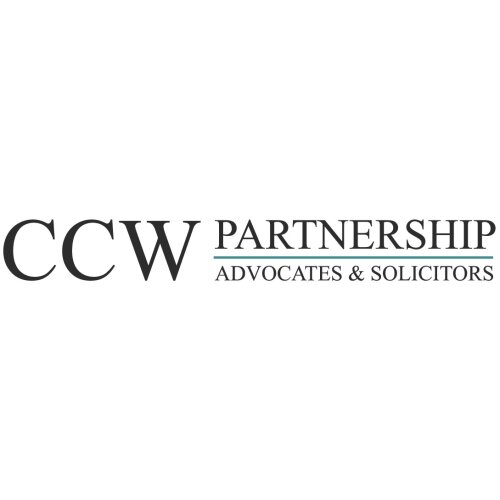Best Collaborative Law Lawyers in Bandar Seri Begawan
Share your needs with us, get contacted by law firms.
Free. Takes 2 min.
Free Guide to Hiring a Family Lawyer
List of the best lawyers in Bandar Seri Begawan, Brunei
About Collaborative Law in Bandar Seri Begawan, Brunei
Collaborative Law is a form of alternative dispute resolution that focuses on amicable settlement through cooperation rather than litigation. In Bandar Seri Begawan, Brunei, this legal process is increasingly recognized for its effectiveness in resolving family law disputes, especially those involving divorce, child custody, and division of property. Through a series of structured negotiations, parties and their respective lawyers work collaboratively to arrive at fair solutions without resorting to court battles. The approach emphasizes maintaining respectful communication and reducing conflict, which is especially beneficial in a close-knit society like Brunei.
Why You May Need a Lawyer
Collaborative Law aims to mitigate the adversarial nature of traditional legal proceedings. Individuals in Bandar Seri Begawan may seek a lawyer experienced in Collaborative Law for several reasons, including:
- Divorce: To navigate the complex process amicably and ensure fair division of assets.
- Child Custody: To craft mutually agreeable parenting plans that prioritize the child’s well-being.
- Property Disputes: To reach a settlement that is satisfactory to all parties involved without court intervention.
- Business Disputes: For family-owned or small businesses, where preserving relationships is crucial.
Local Laws Overview
The legal framework in Bandar Seri Begawan reflects the country's unique blend of local customs and common law principles. Key aspects relevant to Collaborative Law include:
- Family Law Act: Governs issues related to marriage, divorce, and child custody.
- Syariah Law: Applies to Muslims in marriage and family matters, with its own set of regulations that complement collaborative approaches.
- Alternative Dispute Resolution: Endorsed by local judiciary systems as a means to alleviate court caseloads and promote peaceful settlements.
Frequently Asked Questions
What is Collaborative Law?
Collaborative Law is a legal process enabling parties in dispute to resolve conflicts using cooperative techniques rather than adversarial methods, with the assistance of trained lawyers.
How is it different from mediation?
Unlike mediation, where a neutral third party facilitates the discussions, Collaborative Law involves each party being represented by their lawyer throughout the negotiation.
What are the benefits of Collaborative Law?
It reduces legal costs, saves time, preserves relationships, and offers more personalized solutions compared to traditional litigation.
Can it be used for non-family disputes?
Yes, while commonly used for family law issues, collaborative methods can be applied to business and community disputes as well.
Is Collaborative Law recognized by Brunei's legal system?
Yes, it is increasingly recognized as a viable option for dispute resolution, particularly for family-related matters.
What happens if no agreement is reached?
If parties cannot agree, they may still proceed to court, but the collaborative process aims to minimize this necessity.
Do I still need a lawyer?
Yes, experienced lawyers are essential in guiding the parties through the collaborative process effectively.
How is privacy handled in Collaborative Law?
Confidentiality is a core principle, with all discussions intended to remain private between the parties and their lawyers.
What is the first step in engaging in Collaborative Law?
Firstly, each party should select a trained collaborative lawyer to represent them and initiate the process.
What if one party wishes to switch to litigation?
If a party chooses litigation, the current collaborative lawyers are typically disqualified from representing the parties in court to maintain the integrity of the collaborative process.
Additional Resources
For those seeking assistance in Collaborative Law in Bandar Seri Begawan, consider reaching out to the following:
- Law Society of Brunei Darussalam: Offers guidance and lists qualified collaborative lawyers.
- Family Court of Brunei: Provides information on family-related legal processes and alternative dispute resolution.
- Community Legal Clinics: Offer initial consultations and resources for those needing legal advice.
Next Steps
Should you decide to pursue Collaborative Law, it is crucial to consult with a lawyer who specializes in this field. Start by identifying your goals for the outcome and seek a lawyer experienced in collaborative practices to discuss your options. Attending an information session or workshop on Collaborative Law may offer valuable insights before you begin the process. Once ready, initiate discussions with the other party involved, emphasizing a mutual desire for cooperation and agreement.
Lawzana helps you find the best lawyers and law firms in Bandar Seri Begawan through a curated and pre-screened list of qualified legal professionals. Our platform offers rankings and detailed profiles of attorneys and law firms, allowing you to compare based on practice areas, including Collaborative Law, experience, and client feedback.
Each profile includes a description of the firm's areas of practice, client reviews, team members and partners, year of establishment, spoken languages, office locations, contact information, social media presence, and any published articles or resources. Most firms on our platform speak English and are experienced in both local and international legal matters.
Get a quote from top-rated law firms in Bandar Seri Begawan, Brunei — quickly, securely, and without unnecessary hassle.
Disclaimer:
The information provided on this page is for general informational purposes only and does not constitute legal advice. While we strive to ensure the accuracy and relevance of the content, legal information may change over time, and interpretations of the law can vary. You should always consult with a qualified legal professional for advice specific to your situation.
We disclaim all liability for actions taken or not taken based on the content of this page. If you believe any information is incorrect or outdated, please contact us, and we will review and update it where appropriate.












